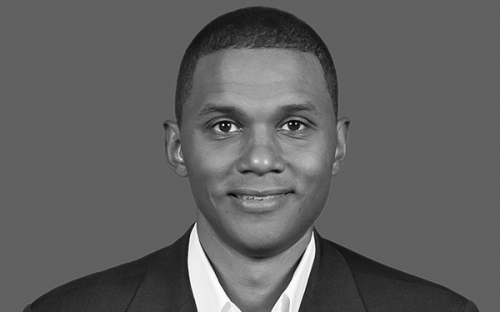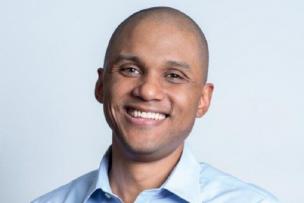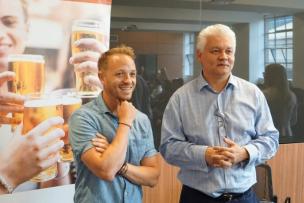That prestige means Bain is also one of the 25 toughest companies to interview at according to a survey from Glassdoor.
The good news is that Bain plans to hire a record number of consultants in 2017, most of whom will be MBAs. Bain is a top recruiter at most of the top-20-ranked MBA schools such as Columbia Business School and INSEAD of France. The firm employs 6,000 in 53 offices in 34 countries.
So what can business school students do to land a coveted job there?
We asked Keith Bevans, Bain’s global head of consulting recruitment. Here’s what the Harvard Business School graduate told us:
Q. Why does Bain love MBAs?
Because of the educational background that MBAs bring. To be in a top program you come with great work and leadership experience. The schools are only admitting the top of the top.
But also, because of the experience of going through an MBA program. Most campuses bring students from around the world together and get them through the learning curve very quickly, which is similar to what you’ll do as a consultant. You might be entering a market or technology you’re not familiar with. You don’t get five years to figure that out. In an MBA program, you’re continually challenging yourself and that is valuable.
Q. How many MBAs will you hire in 2017?
We are hiring north of 400 Consultants this year, which includes MBAs, PhDs, and Associate Consultants who are returning from business schools. Last year and the year before, we hired our largest consulting classes ever and we expect to do that again this Fall. Right now, we’re planning to grow it.
Q. How important is the internship?
The intern cycle is a great way to find the best talent on campus and give them a chance to see what we do.
Ninety percent of our interns come back as full-time hires. Every intern that I hire I want to come back full-time. Which means every intern that I hire, candidly, is one less person I need to hire in the Fall. We almost always exceed our recruiting target for our intern class. I’ll take everybody who is great and I’ll adjust my second-year [MBA student] targets accordingly.
Q. Which business schools will you hire from?
What’s important for us is to look at the top 15-20 ranked schools, which are generally the bigger programs. By the time you get down to the top the 20-25 ranked schools, you get very small programs. The math doesn’t work well [because we need to recruit large numbers of students]. We also know that those top-ranked schools are very selective, and we know that all their students are strong candidates.
Q. What attributes are you looking for in consulting staff?
There are three underlying characteristics that people need to have:
1) The people who tend to be successful in our firm are the people who have that underlying problem-solving ability.
2) We are a client services business. You need to have a way of connecting with people. You have to be able to engage with people and have them open up with you so you can ask them questions.
3) You have to be able to work in teams. And this is more unique to Bain than at other firms. The people that are most successful at Bain tend to be very humble about their backgrounds. If you’re the type of person who constantly feels like you need to prove you’re the smartest person in the room, that’s not a great fit for us. You need to check your ego at the door.
Q. What does a candidate’s response to a Bain case interview question reveal?
As well as problem solving, client servicing and team working abilities, we are looking for people who can communicate complex problems in a succinct way.
Bain people are not trying to impress you by using the most jargon. We are trying to take complicated business problems and explain them in a way that someone on the factory floor can understand, and change their behaviour accordingly. You can’t do that on the front-line if you’re only speaking C-suite language.
Q. What differentiates Bain from a BCG or a Mckinsey & Company?
There are a couple of things that makes us unique from our competitors:
1) You join Bain as a generalist. The staffing manager will get you a variety of experiences. We believe a broad view of business gives you the ability to bring insights from one industry to another. Our clients value that. That’s where the breakthroughs come from.
2) When you join Bain, you join an office. We are a global firm, but we are a team in an office. Those relationships are valuable.
Q. Recruitment is a two-way process. What are you doing to appeal to MBAs?
It is important that we get to meet students at our events on campus. We are trying to reduce the time spent on presentations, to allow students to spend more time meeting Bain people.
Q. Tell us something most people don’t know about Bain?
What’s surprising for people is that that, despite the growth and the need to get people to Manager, we have open dialogue about what else people would like to do professionally, five or ten years’ down the line [outside of the firm].
We send a lot of people to the Fortune 500, but you’ll also see a lot of people going to small and mid-sized firms and not-for-profits. Because you have seen such a broad range of industries at Bain, you are not limited in terms of your career.
Q. How has your Harvard Business School MBA helped you at Bain?
The MBA broadens your horizons and gives you an appreciation for people with different backgrounds. Even after doing four years at Bain, working internationally with dozens of clients, what I saw at business school was a much broader set people.
For people who have been in consulting, it’s also often the first extended period of time spent with people who have been in industry. You finish your MBA with an appreciation for how smart and talented people are in different industries.
RECAPTHA :
ee
06
48
40









